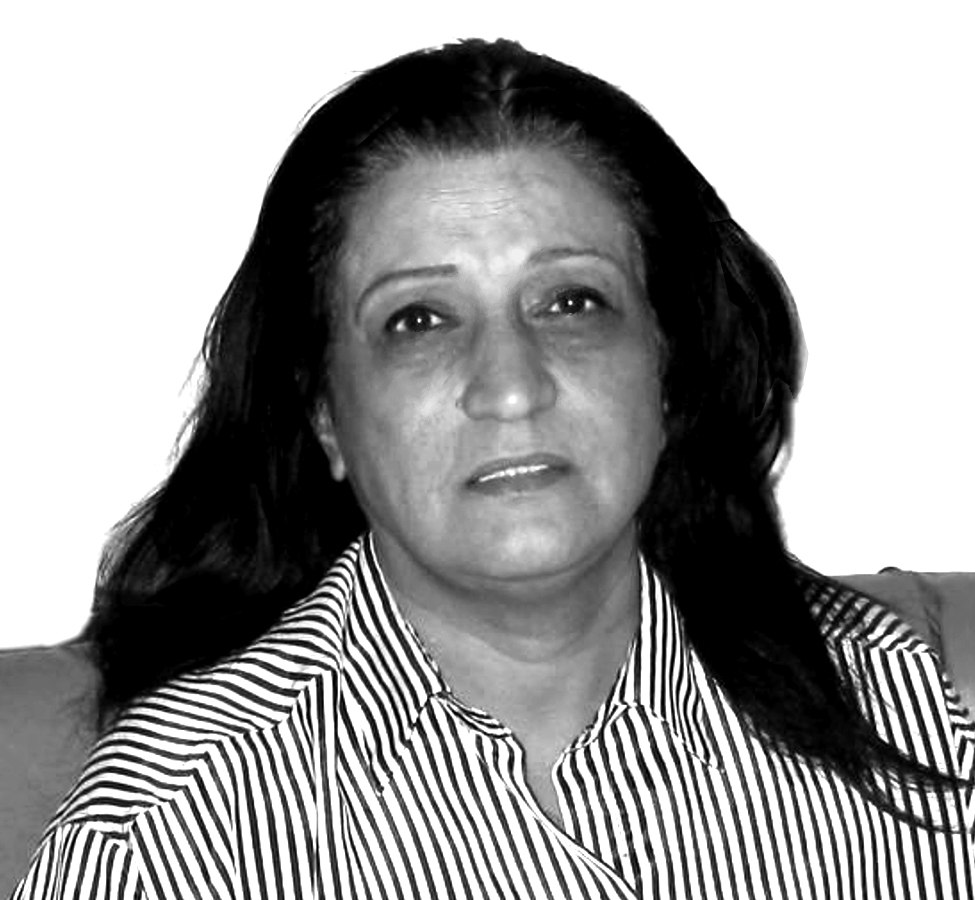Ibtihal Salem.
Ibtihal Salem passed away unexpectedly on August 15, 2015 in Cairo, at the age of 66. Well known in Egypt not only for her prolific fiction production, but also for her role as a social critic and mentor to young writers and artists, Salem wrote four short story collections and six novels. She worked professionally for the Ministry of Culture, translating programs and stories from French into Arabic for broadcast on State radio and in TV programs. She also served as the executive director of the public sector Samir Theater in downtown Cairo. Salem’s commitment to young people extended to her translation work; she translated many children’s stories from French into Arabic and published them in book form and in journals across the Arab world. Salem participated widely in Cairo’s literary and intellectual worlds, making frequent contributions to conferences and literary circles.
I first met Salem in Cairo in the early 1990s while I conducted dissertation research on women writers in the city. I remember being struck by her passion for her work as a writer, and her commitment to the idea that fiction writing can be a source of inspiration and support to people as they deal with the everyday frustrations of life in Egypt.
Born in Cairo in 1949, Salem grew up in a large family. Her father worked as a university professor and the family lived in Hayy al-Zahir, on the northeast side of the city. In interviews, Salem told me that growing up in this highly integrated area in the 1940s and 1950s proved very important to her own developing system of values, as it allowed her to experience a community in which Coptic Christians, Armenians, Greeks, Jews and Muslims lived together and shared aspects of their cultural and religious traditions. Salem writes about a similarly integrated neighborhood in her novel Sundūq Saghīrfī-l-qalb [A Small Box in the Heart] (2004), which explores the life of a woman who comes of age in the Egypt of the 1970s, and witnesses the deterioration of some of these old and diverse Cairene neighborhoods.
One of her more recent novels, Al-Sama’ la Tumtir Ahibba [The Sky does not Rain Lovers] (2008) deals with the many economic pressures that Egyptians have faced in recent decades. In an interview I conducted with her in 2007, Salem said this novel: “deals with the idea that despite all the difficulties that the Egyptian people have faced in the contemporary period, they nevertheless have the ability to create love and joy, and to change their lives. They do not have to submit to these oppressive circumstances.” This comment seems prescient given the revolutionary period that has ensued since 2011, but I think it also represents a feeling that many Egyptians shared then and still share now.
Salem’s short stories and novels have garnered significant critical attention both in Egypt and in the West. Critics have drawn special attention to the cross-genre nature of her writing; the poetic prose that characterizes much of her work. Prominent Egyptian writer and critic Edwar al-Kharrat has written admiringly of her use of poetic prose to explore unusual or difficult topics (including sexuality), and to bring into relief the contradictions of contemporary norms and values. Marilyn Booth, who translated a collection of Salem’s short stories, has described Salem’s short fiction as “meteoric stories” that successfully balance the “narrative demands of story-telling with the immediacy and visuality of vignettes of film takes, and the compressed depths of prose poetry.”
Salem’s experimentation with incorporating the colloquial Egyptian dialect into the internal and external dialogues of her characters has also brought her acclaim. Therese Saliba has noted that Salem’s work delivers a sophisticated representation of gender oppression in Egypt by linking it to a globalized consumer economy, as well as the national and international pressures and policies that have led to war in the region. Saliba also points out that despite her poignant critiques, Salem also maintains an element of hope in her fiction.
I personally witnessed Salem’s enduring hope for the future of Egypt, despite all that the country has experienced in recent years. Just weeks before she died, and not long after the Italian Embassy and other bombings in the city, I walked with this remarkable woman to Tahrir Square during the Eid celebrations. She gestured to the large crowd of families celebrating in the Square and said, “Egyptians love life and they aren’t afraid. Despite terrorism and the political and other troubles we have been through recently, we will continue to live.”
This article appeared in Al Jadid Magazine, Vol. 19, No. 69, 2015.
Copyright © 2015 AL JADID MAGAZINE

